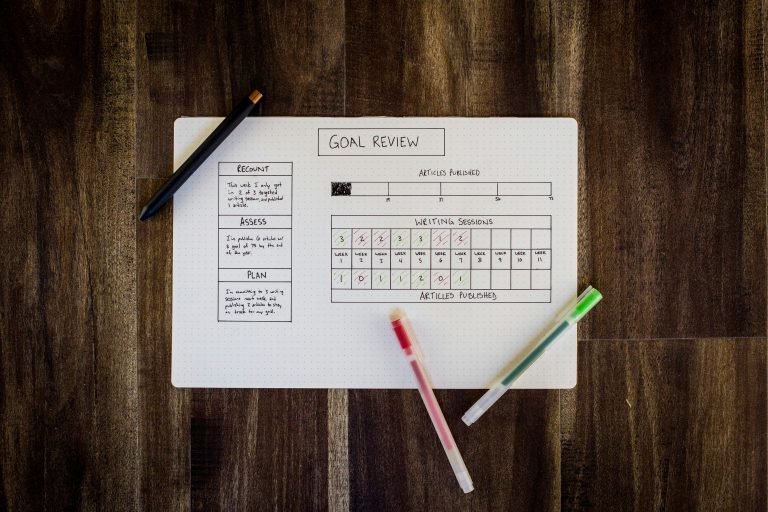The 5 Types of Plagiarism and How to Avoid Them
Most of us know that stealing is wrong. The average person doesn’t go around stealing candy from the store or taking a laptop left on a library table. But what about stealing ideas, thoughts, or research? That particular brand of stealing is plagiarism, something most people, especially those involved in research and education, are familiar with. Merriam-Webster defines plagiarism as “to steal and pass off (the ideas or words of another) as one’s own: use (another’s production) without crediting the source.”1 What most people don’t know is that there are five types of plagiarism: global, verbatim, paraphrasing, patchwork, and self-plagiarism. Scribbr (a company that provides plagiarism checking, professional editing, citation help, and writing coaching) has its own guide to plagiarism that details these five types of plagiarism.
1. Global Plagiarism
While most types of plagiarism are accidental, global plagiarism is very intentional. Global plagiarism is taking someone’s work and passing it off as your own. This could mean submitting someone else’s work, buying a paper online, or using a friend’s paper as your own. Since this is the most deliberate form of plagiarism, it often carries the harshest consequences.
Tip: Do find awesome sources. Don’t try to pass them off as your own.
2. Verbatim Plagiarism
As the name suggests, verbatim plagiarism involves copying someone else’s work word for word without attribution. According to Scibbr, verbatim plagiarism includes changing a couple of words while keeping the majority of the work or structure the same.2
Tip: Do find quotes that support your argument. Don’t copy them without attribution.
3. Paraphrasing Plagiarism
This type of plagiarism is restating someone else’s work without attribution. This is also the most common form of plagiarism. Paraphrasing is a legitimate way of using outside sources, but it becomes plagiarism when you try to pass the information off as your original idea and neglect to cite your source.
Tip: Do concisely state information. Don’t forget to cite where you got the information.
4. Patchwork Plagiarism
Patchwork plagiarism involves stitching together and rephrasing information from a variety of sources without providing citations. Scribbr says, “This can involve slightly rephrasing passages while keeping many of the same words and the same basic structure as the original, and inserting your own words here and there to stitch the plagiarized text together.”2 So, always remember to cite those sources!
Tip: Do find a variety of sources to enrich your writing. Don’t use the information without engaging with or citing it.
5. Self-plagiarism
This is probably the most misunderstood form of plagiarism. According to Scribbr, “Self-plagiarism means reusing work that you’ve previously submitted or published. It amounts to academic dishonesty to present a paper or a piece of data as brand new when you’ve already gotten credit for the work.”2 Because they aren’t stealing someone else’s work, many students don’t understand that turning in previously submitted work counts as plagiarism. This type of plagiarism is also hard to detect since student papers are not typically uploaded to a database searchable by plagiarism checkers. If you wish to reuse a paper for another class, get permission from the current and previous instructor (or from the institution or journal you published with) to do so.
Tip: Do build upon previous papers. Don’t turn in the same paper more than once.
Avoiding Plagiarism
Understanding the different types of plagiarism helps us better understand how to avoid them. The best way to avoid plagiarism is to keep track of your sources. It can be easy to get into the groove of writing and forget that the information on the page came from somewhere else. One tip is to create some indicator that a citation is needed as you write. An indicator could be simply adding parentheses with something like “need source” or highlighting the section. When in doubt, you can always use a plagiarism checker to make sure you haven’t missed anything. Scribbr and Grammarly are popular plagiarism checkers, and Scribbr also helps create and organize citations.
The Takeaway
Most of us aren’t writing papers with the intent to steal ideas to pass off as our own. However, it is easy to mismanage our quotes and forget to go back and add a citation. Keeping accidental plagiarism out of our work requires effort and practice. Find a system that works for you, and remember you can always check your work with a plagiarism checker!
Sources
1 Merriam-Webster.com Dictionary, s.v. “plagiarize,” accessed January 17, 2023, https://www.merriam-webster.com/dictionary/plagiarize.
2 Streefkerk, R. (2022, July 05). The 5 Types of Plagiarism | Explanations & Examples. Scribbr. Retrieved January 16, 2023, from https://www.scribbr.com/plagiarism/types-of-plagiarism/







